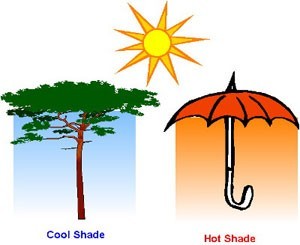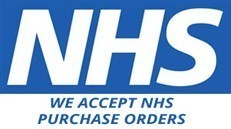| Everybody loves glorious weather but a real heatwave can be deadly. Summer in some regions of the world may become one long heatwave even if global average temperatures rise only 2°C above pre-industrial levels and certain regions may become close to unlivable if temperatures increase by 5°C (Alvin Stone, University of New South Wales UNSW). Get informed about heatwaves and be prepared so you can make the best of hot weather. For personal preparedness, see blog How to stay cool. For a longer-term view, see our blog "Prepare for a world that’s more than 2° C warmer". The Public Health Heatwave Plan for England recognises that summers are getting hotter. It builds on the NHS’ previous experience in England as well as on expert advice from the WHO and the EuroHEAT project. A Heat Watch alert system operates from 1st June to 15th September and is based on Met Office data. When appropriate this will trigger a range of responses from the NHS, government and public health systems to communicate risk. This is a summary of the plan (call 111 for NHS advice or help). There are 4 Levels:
- Level 1 Heatwave Preparedness Programme 1st June – 15th September (base alertness level during the seasonal Heat Watch)
- Level 2 Heatwave forecast (60% risk level in the next 2-3 days); for help or advice contact NHS 111, they recomment
- no immediate action is necessary but stay informed, check local forecast especially if you travel
- plan ahead, stock supplies (meds, food, drink) to avoid going out during the heatwave
- stay hydrated and always have water to hand, stay cool (shade, know your coolest room)
- Level 3 Heatwave Action (threshold temperatures reached in one or more Met Office National Severe Weather Warning Service regions); threshold teperatures are set regionally, mostly set at levels day 30°C / night 15°Ct, exceptions being London (32°C/18°C), South East (32°C/16°C) Yorkshire and Humber (29°C/15°C) and Northeast (28°C/15°C); see i.e. BBC 2013 video; 2003 video
- avoid travel, stay informed, stay in the shade from 11am to 3pm
- help others: inform vulnerable people in your family and neighbourhood (children, people living alonge, the elderly or ill)
- stay inside in the coolest room, splash yourself with cool water, drink plenty of water and juices, avoid alcohol, minimize caffeine
- keep rooms cool: use shades or reflective material outside the glass, use light coloured fabric curtains and shut them, keep windows closed during the hottest time and open when the air is cooler outside than in the room
- Level 4 Heatwave alert is the highest alert issued, MAJOR INCIDENT, NATIONAL EMERGENCY; issued by the government in case of a severe and prolongued heatwave which will affect transport, food and water, energy supplies and businesses as well as health and social care services. Follow level 3 guidance and stay updated. At this level the heatwave will also affect fit and healthy people. Minimize exertion
| 
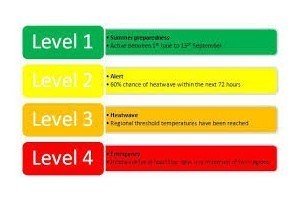
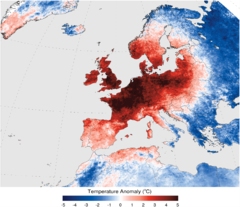
| |
1. ASSESS know about Heatwave: Heat Exhaustion and Heat Stroke
Symptoms for heat exhaustion - treat immediately! headaches, dizziness, nausea and vomiting, muscle weakness or cramps, pale skin, high temperature.
If this happens, move into a cool place, drink water, take a lukewarm/cool shower or sponge yourself. Do not leave untreated. Heat exhaustion can quite quickly develop into heatstroke. Symptoms for heat stroke - call for help immediately! headaches, nausea, intense thirst, sleepiness , hot, red and dry skin, a sudden rise in temperature, confusion , aggression, convulsions, loss of consciousness.
Call 999 immediately. Heatstroke can cause irreversible damage to your body and brain and may cause death.
...more NHS info; SJA; Heatwave - what does it mean? Key trigger temperatures (as defined by the NHS) - 24°C (for 3 days running) – London Underground deploy hot weather notices and supply bottled water. Maintenance workers begin work to stop rails buckling. Network rail also begin additional precautions to their tracks
- 24.5°CTemperature at which any excess deaths may first become apparent
- 33°C tarmac roads may begin to melt
- 38.5°C Highest daytime temperature recorded in the UK
- 41.5°C and 36.2°C temperatures recorded on the tube and on the platform during the 2003heatwave
- 52°C and 48°C–when train rails reach these temperatures a temporary speed restriction(TSR) is introduced (50% and 30% speed reduction)
Heatwave - some serious issues during level 3 and 4 Heatwaves - increased risk of fires and wildfires
- lower power station efficiency, power outages (see preparedness for power cuts in our Resilience Blog)
- air quality problems as smog and pollution typically accompanies heatwaves
- food & water shortages short term (transport) and long term (crop stress and failures, blue-green algae growth contaminates fresh water)
- many other environmental issues including odour, pollution and vermin infestation + animal welfare issues
Be aware that heatwaves often trigger violent thunderstorms followed by localized flooding. See preparedness for storm and preparedness for flooding. 2. PREPARE for severe Heat - Heatwave - get ready to keep the cool in and the heat out, i.e. external shading for windows, insulate loft and cavity walls, use fans to stay cool but only if temperatures do not exceed 35°C
- replace dark curtains and metal blinds or install reflective material in-between them and the window
- stock emergency food and water supplies, prepare your emergency kits
- check medicine stocks, include oral rehydration, store below 25°C
- place thermomenters in your main rooms and bedroom
- secure your home for thunder stroms
3. STAY SAFE during severe Heat - Heatwave - keep informed - stay aware
- babies, children or the elderly or ill need special consideration
- check on vulnerable neighbours, family or friends every day
- stay cool, avoid the outdoors from 11am to 3pm
- wear light and loose fitting clothes, sun hat, apply sun protection
- drink plenty of water and some fruit juice to rehydrate, eat light meals
- do not overexert yourself; get help if you feel dizzy, weak, anxious or have intense thirst and headache; check your body temperature
- open windows only when the outside temperature is cooler than inside
- turn off all non-essential lights and electrical equipment
- keep indoor plants and bowls of water, evaporation helps cool the air
- move to the coolest room, especially for sleeping
4. RECOVER - replenish your supplies thank you for sharing! Select resources: Heatindex (Wiki); NHS SummerHealth; GOV UK Heatwave; DEFRA live UV index; British Red Cross Heatwave; Age UK Heatwave; BBC Q&A Heatwave; How to sleep in hot weather BBC;
Wiki List of Major Power Outages; National Grid Power Cuts; BBC 10 ways the UK is ill prepared; Can the body cope with 50C BBC; The worst heatwaves in history The Telegraph emBRACE case study 'Heat waves in London' | 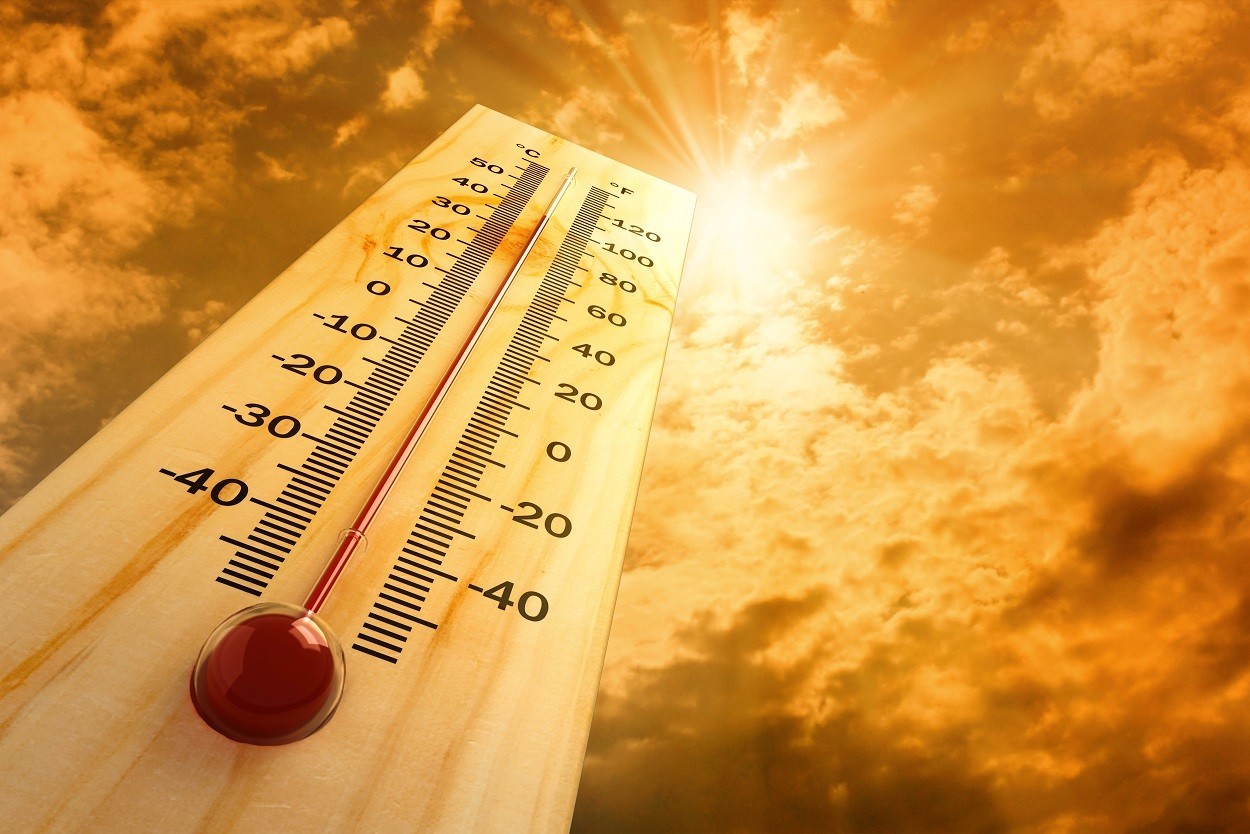
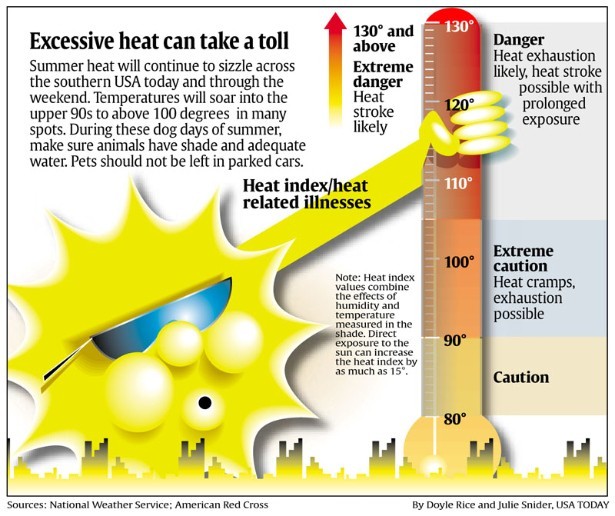
| |
